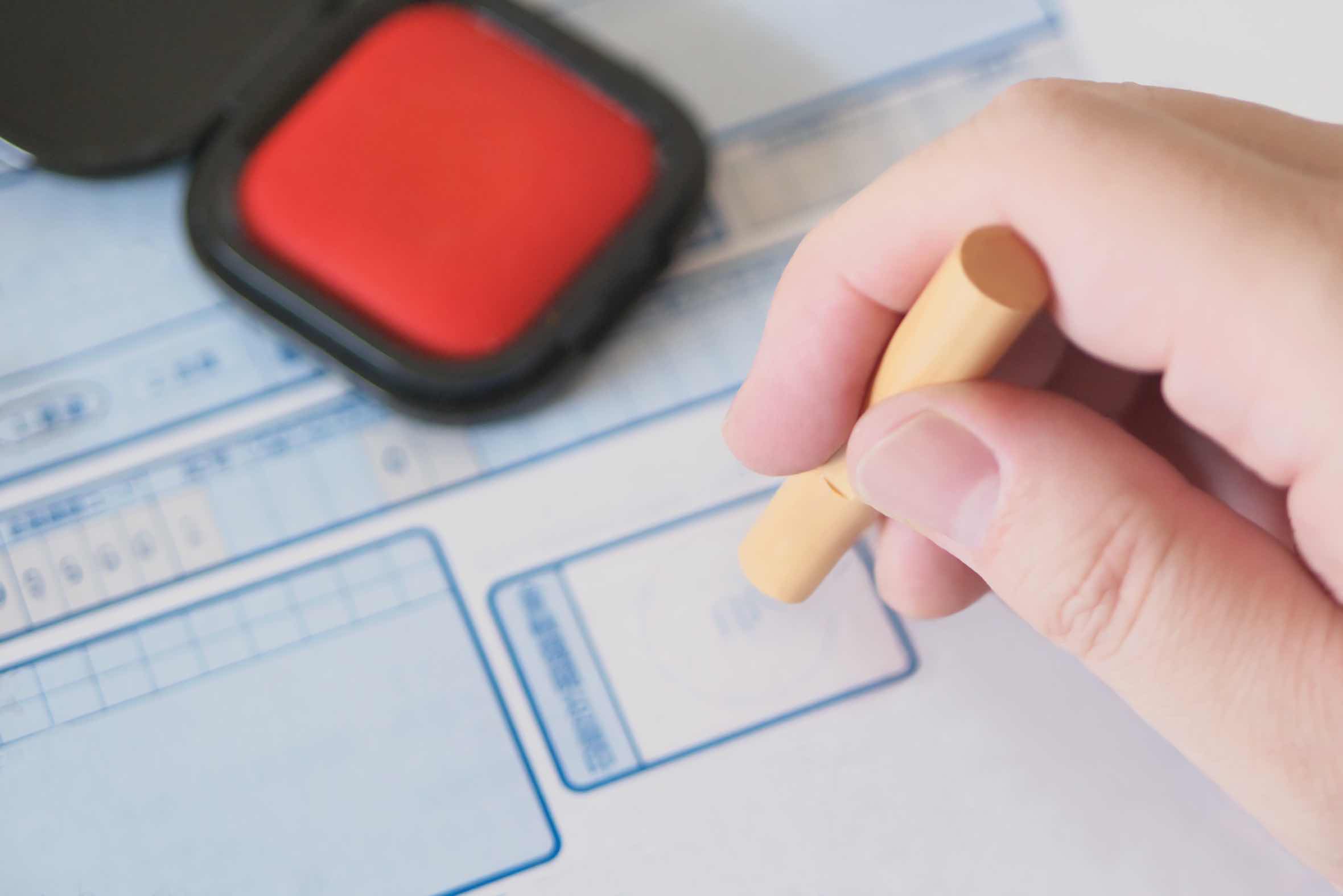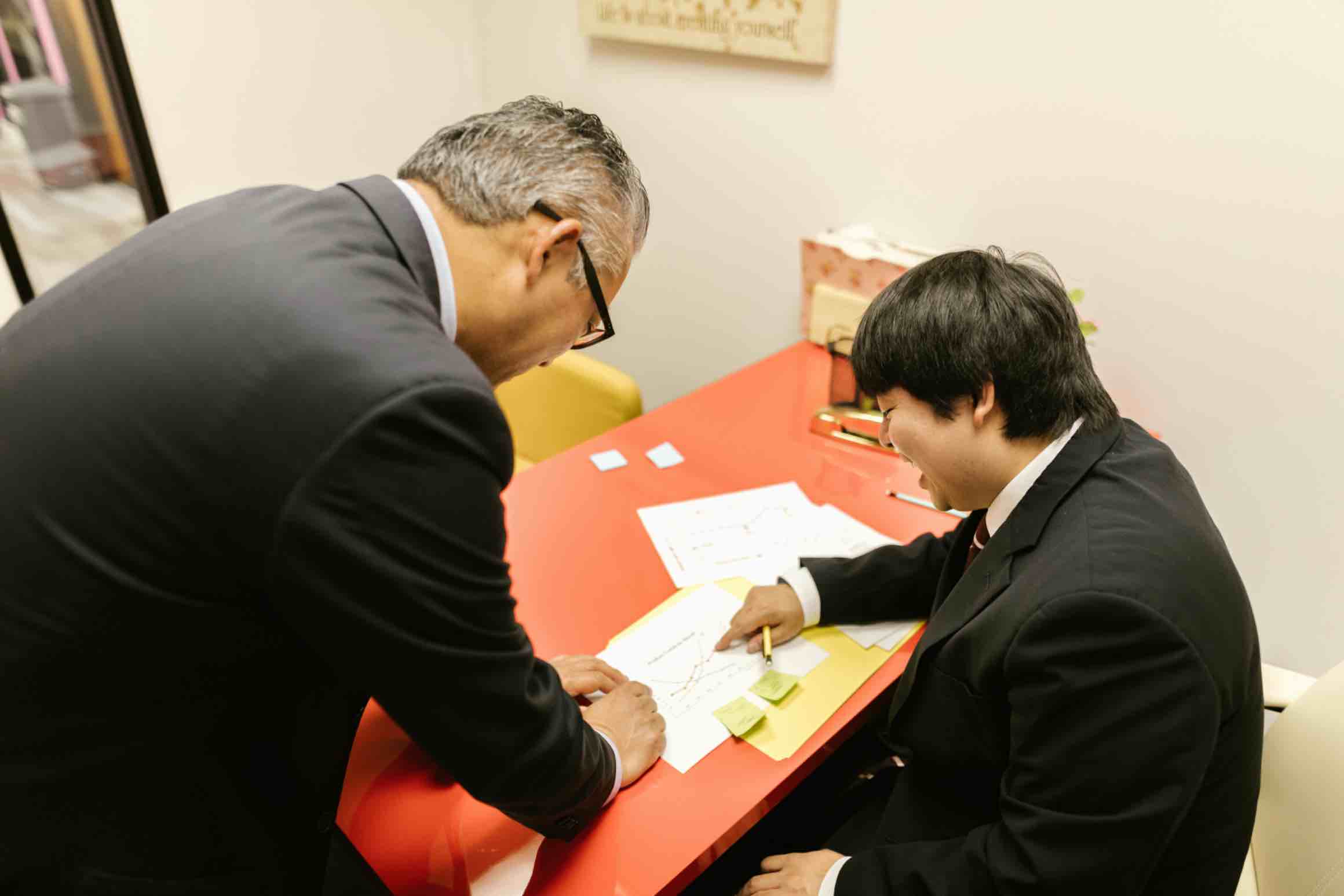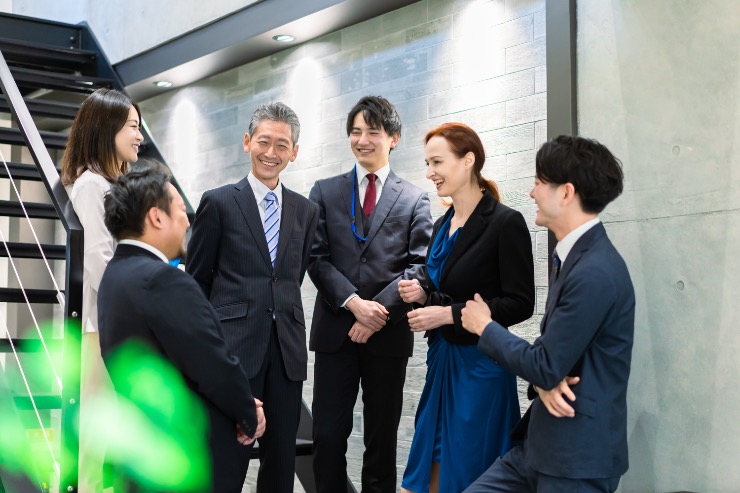Japanese Work Culture Explained: Tips for Interns and Newcomers
When people talk about working in Japan, words like kaizen (continuous improvement) and omotenashi (hospitality) often come up when describing Japanese work culture. But while those concepts are important, they only scratch the surface of what it’s actually like to step into a Japanese workplace.
The reality is: much of Japanese work culture operates on subtle cues and expectations that aren’t always obvious, especially if you’re coming from a Western background. Things like how decisions are made and who speaks in meetings might seem confusing at first.
If you’re preparing for an internship in Japan or considering future job opportunities, understanding this cultural foundation and nuances that shape the workplace experience will help you adapt more comfortably.
Hierarchy and Respect for Roles
Japanese workplaces tend to be highly structured, with a clear chain of command that influences how decisions are made, how people communicate, and even where everyone sits in a meeting. Titles and job roles carry a lot of weight, not just for formalities, but for understanding how to interact with others and where responsibility lies.
This structure is reflected in the concept of 上下関係 (jōge kankei), or “up-down relationships,” which is all about recognizing your position relative to others in the company. This concept translates into knowing when to speak, who to defer to, and how to show professional respect in daily interactions.
You’ll see this play out in the small things: junior employees pouring drinks for seniors at work dinners, the boss sitting farthest from the door in meetings, or a team waiting for the manager to speak before offering opinions (for example, a new employee or intern, is rarely expected to jump into a conversation uninvited). Even if the company and team feel more relaxed and casual on the surface, these patterns often remain underneath.
For interns or newcomers, this can feel unfamiliar, especially if you’re used to more casual work environments. But that doesn’t mean your voice doesn’t matter or that Japanese workplaces are looking for complete silence from newcomers. It just means you may need to find the right time and tone to speak up; thoughtful input and fresh perspectives are still highly appreciated.
While many modern companies are softening traditional norms, understanding how hierarchy works, both formally and informally, can help you navigate your role with confidence and show that you respect the culture, even as an outsider, and avoid accidental missteps or awkward moments.

Consensus Decision-Making
If you’re used to quick decisions or quick brainstorming sessions, Japan’s approach to decision-making might feel surprisingly slow at first. That’s because decisions here aren’t usually made on the spot, and they almost never come from one person at the top. Instead, the process is built on consensus, and behind every official decision, there’s a lot of informal groundwork.
This is where nemawashi (根回し) comes in. Literally meaning “root-turning,” it refers to the quiet and prep work done before any proposal is brought to the table. It usually happens through side conversations, emails, or informal check-ins where the idea is tested, feedback is gathered, and support is secured by all the parties involved. That way, by the time something is officially discussed, most people are already aware of it and will likely agree.
Then comes the ringi system (稟議制度). Instead of a manager or CEO making a decision by themselves, a document called a ringisho (稟議書) is circulated among relevant members for their stamp of approval (hanko). Each person reviews the proposal and signs off, typically starting from junior employees and moving up the ladder. This might seem like a lot of paperwork, but it reflects Japan’s emphasis on wa (和, harmony) and group accountability.
To outsiders, this consensus-driven system can feel slow or overly cautious. But there’s a reason behind it: It helps avoid open conflict, ensures that everyone’s voice is heard (even junior staff), creates a stronger sense of buy-in across teams, and, by being reviewed by different departments and people, reduces the risk of overlooking issues, contributing to a more robust and well-considered outcome.
Great ideas don’t always win by being bold or loud; in many Japanese workplaces, they gain traction by being well-rooted (pun intended!) before they bloom.

Communication: Reading Between the Lines
For anyone navigating internships or jobs in Japan, one of the biggest cultural shifts is learning how to listen beyond the words. Japanese workplace communication often relies less on what’s said and more on how it’s said (if it’s said at all!).
This is where kuuki wo yomu (空気を読む), or “reading the room,” comes in handy. It’s about picking up on nonverbal cues, pauses, tone, and the overall atmosphere of the conversation. A “yes” might simply mean “I heard you,” not “I agree,” and even silence can carry everything from agreement to discomfort, or a cue to change the topic.
Another key feature of communication in Japanese workplaces is indirectness, often used to maintain harmony within the group. Instead of a firm “no,” you might hear “chotto…” or “we’ll think about it,” both of which often suggest hesitation or polite refusal.
The idea isn’t to mislead but to avoid direct confrontation or putting someone on the spot. What’s left unsaid can speak just as loudly as what’s spoken, especially in settings where preserving relationships is prioritized over getting to the point quickly.
Feedback also tends to be indirect and phrased gently, so don’t expect a clear ‘great job’ or ‘this needs work.’
Then there’s honne (本音) and tatemae (建前), terms that often come up when discussing Japanese culture. Honne refers to someone’s personal, honest feelings, while tatemae is the socially expected or “public” expression of those feelings (what’s socially expected or appropriate to say in public).
And in work environments, tatemae tends to lead, especially when navigating group decisions or conversations with authority figures. This doesn’t mean people are being dishonest, it’s more about choosing words that keep a peaceful group dynamic.

Team-Oriented Workplaces and Group Mentality
In many Japanese workplaces, success it’s about how well the team functions as a whole, instead of how well one person performs. Of course, individual achievements aren’t ignored but taking sole credit or trying to stand out too much can be seen as disrupting the group dynamic, something that also ties closely to the cultural value of wa (harmony).
People are still ambitious, but they’re expected to show it by supporting the team and contributing to group success rather than standing out individually. That might be by being aware of what teammates are doing, stepping in to help without being asked, or making sure no one is left behind. In fact, being observant and proactive is often more valued than simply being fast or skilled.
Also, being flexible and willing to adjust based on the team’s needs, even with responsibilities that initially don’t fall under your role, shows that you understand the rhythm of the workplace and care about the group’s success, not just your own.

Mentorship and the Senpai-Kōhai System
In many Japanese workplaces, especially for interns or newcomers, the senpai-kōhai (先輩・後輩) system plays a big role. It’s not exactly a formal rule, but more of an unspoken social structure where those with more experience (senpai) guide and support those who are newer (kōhai).
A senpai is someone who's been around longer and understands how things work, not just necessarily older, while a kōhai is someone newer to the company, role, or even team. The expectation is that senpai look out for their kōhai and help newer members settle in, by answering questions, showing how to handle a task, or offering advice during the first few weeks.
Even in modern or less formal offices, you might notice this relationship at play and this system can still influence how people interact. During an internship, for example, your assigned supervisor or the person who explains your tasks might be seen as your senpai. They’re usually the go-to for questions or small problems, just make sure to show that you’re listening, learning, and valuing their time!

Common Misunderstandings and How to Avoid Them
Despite best efforts, cultural misunderstandings happen, on both sides. Being aware of a few typical miscommunications can save you trouble. For example, Japanese coworkers might not give you direct criticism or clear “yes/no” answers, which can leave foreign interns guessing.
You might finish a task and only receive a polite “thank you, it’s fine” even if there were small mistakes, because your supervisor doesn’t want to embarrass you by pointing them out bluntly. An intern could mistakenly think silence means approval, when in fact colleagues have reservations they haven’t voiced.
On the flip side, your own behavior might be misread by Japanese staff. A common example is speaking up frankly in meetings. In many Western cultures, being straightforward and sharing ideas openly is appreciated, but in Japan, junior members tend to defer to the senior opinion or only speak when asked.
A foreign intern who jumps in with a strong opinion or critique (even with good intentions) might surprise or even offend others by seeming too bold. It's always best to tone down comments to match the room’s expectations, even if you meant to be efficient and honest, it can be perceived as not having the expected humility. You can also ask questions after meetings rather than during them, and when in doubt, frame your ideas as suggestions rather than strong assertions.
Also, remember that what sounds like a mild suggestion in Japanese (“this is a bit difficult…”) might actually be a polite refusal or a critique. Reading between the lines comes with experience.
Such cultural gaps can be tricky to navigate, so the best approach is to observe and ask: watch how your Japanese coworkers communicate in similar situations, and don’t hesitate to quietly ask a mentor for guidance if you’re unsure why something you did caused confusion.
When in doubt, it’s okay to double-check: “Just to confirm, would you prefer I do X instead?” This gives a polite avenue for your Japanese manager to clarify their true intent without feeling they are being too harsh. And if you sense you may have unknowingly stepped on a toe, a simple apology and willingness to adapt will calm things over.
Every cross-cultural misstep is an opportunity to learn; Japanese colleagues generally appreciate the effort foreign interns make to bridge the gap. By staying observant, keeping communication friendly and humble but polite, and not taking things personally, you’ll overcome most misunderstandings and gain your team’s respect!

Finding Harmony

For job-seekers and international interns in Japan, the key is to respect the traditions (they’re there for a reason and often have positive intentions) while also embracing the changes. By learning the ropes of Japanese etiquette and communication, you show cultural sensitivity and gain trust. At the same time, your fresh perspective as a foreign is genuinely valued, especially as more companies in Japan aim to innovate and globalize.
So ask questions, stay adaptable, and don’t be afraid to share your ideas (politely!); you might find that your Japanese coworkers are just as curious to learn from you as you are from them. In the end, navigating Japanese work culture is about finding harmony (wa) between being yourself and respecting the group. Do that, and you’ll not only succeed in your internship in Japan but also enjoy the rich experience of working in one of the world’s most fascinating business cultures!
🙇 Ready to take on the challenge of working in Japan?
Understanding Japanese work culture is a game-changer. Stay curious, stay respectful, and don’t forget: your perspective matters too! If you’re ready to experience the real rhythm of a Japanese workplace and learn by doing, an internship in Japan is a great place to start!
Feel prepared to step into a Japanese workplace? Apply now!
Not 100% sure yet? Get in touch with us, we’re happy to answer your questions!







